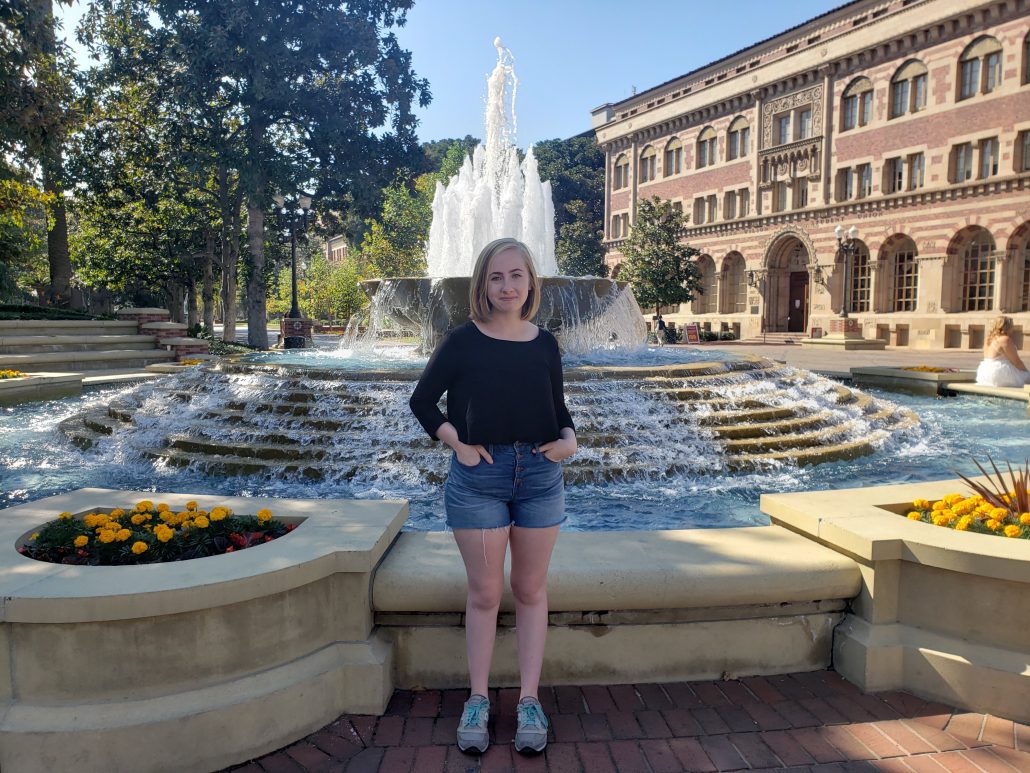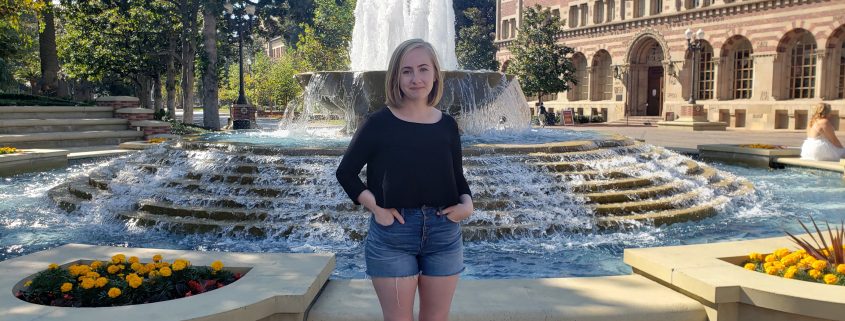USG members create new assembly for accessibility

(Sarah Yaacoub | Daily Trojan)
When Gwen Howard, the director of accessibility affairs of Undergraduate Student Government, took office in April, she knew she wanted to create a community for students with disabilities to change the culture surrounding University accessibility. Howard, a senior majoring in performance (popular music), began working on USG’s newest student assembly, the Student Assembly for Accessibility.
Howard said she didn’t apply for accommodations for Ehlers-Danlos syndrome, a condition that causes overly-flexible joints and stretchy, fragile skin, despite seeking outside treatment for an eating disorder her sophomore year.
“I didn’t really consider a mental illness that really was having a very intense impact on my life to be ‘bad enough,’” Howard said. “And that is something that I think needs to shift: this idea that disability is inherently tragic, disability is inherently sad, that it’s preferable to be ‘normal’ — whatever that means.”
According to Howard, the share of USC students registered with DSP is currently 6.7%, more than double the 3% registered in 2016, but still well below the national average of 12% to 15%. However, many students don’t think or are not aware that their disabilities merit accommodations.
Howard said she hopes having the assembly will increase awareness of commonly overlooked disabilities and the different types of accommodations students with those disabilities may require.
“What I think we need is to expand our sense of what disability needs are,” Howard said. “Rather than thinking of them as extra testing [and] academic accommodations, thinking about the full student experience and ways in which accessibility plays into every day of every student’s life here.”
Javin D’Souza, one of the assembly’s directors, said that while the assembly’s programming is still in the planning stage, the directors are hoping to host guest speaker series, inviting disability rights activists from the area to speak on campus. He said the assembly wants to develop programming that incorporates its members’ experiences.
D’Souza said one of the assembly’s goals is to connect students with disabilities and facilitate discussion at weekly meetings about the ways the student experience differs for those with disabilities.
“The sense of community is not there yet for students with disabilities,” D’Souza said.
Howard said the assembly, which is still in the process of establishing an executive board, will present to the USG Senate Nov. 12. One week later, the Senate will vote on whether to give the assembly a trial semester. Pending approval, the Student Assembly for Accessibility will pilot in Spring 2020, and upon the trial’s conclusion, at the end of March, the Senate will vote to make it a permanent assembly.
Hailey Robertson, a USG senator and former director of accessibility affairs, said the assembly would expand accessibility advocacy to include more students.
“There are groups on campus to represent all different types of identities,” Robertson said. “That’s true for disability as well, but the unique thing is that there isn’t an umbrella organization to provide overlap that allows those different organizations to come together and connect, so it feels very isolated, decentralized [and] disconnected.”
Ben Rosenthal, former advocacy delegate and a USG senator working on the assembly resolution, said the assembly would work to develop resources for students with accessibility needs, including making buildings on campus more accessible.
Rosenthal also said the assembly would advocate for the inclusion of students with disabilities in campus clubs and activities. He said USG’s advocacy branch had already begun this process, working with USC Recreational Sports to expand the annual Swim with Mike wheelchair basketball tournament into a permanent sport.
USC Recreational Sports rents wheelchairs for the event, but Rosenthal said the assembly would push to have the office purchase wheelchairs to start a league.
Howard said that while advocacy efforts have improved accessibility at the University, she hopes that having the assembly will encourage conversation about the social and cultural aspects of having a disability as well.
“It’s really hard to change the culture,” Howard said. “I’m really hoping that having an assembly will help to instill some of these conversations.”

